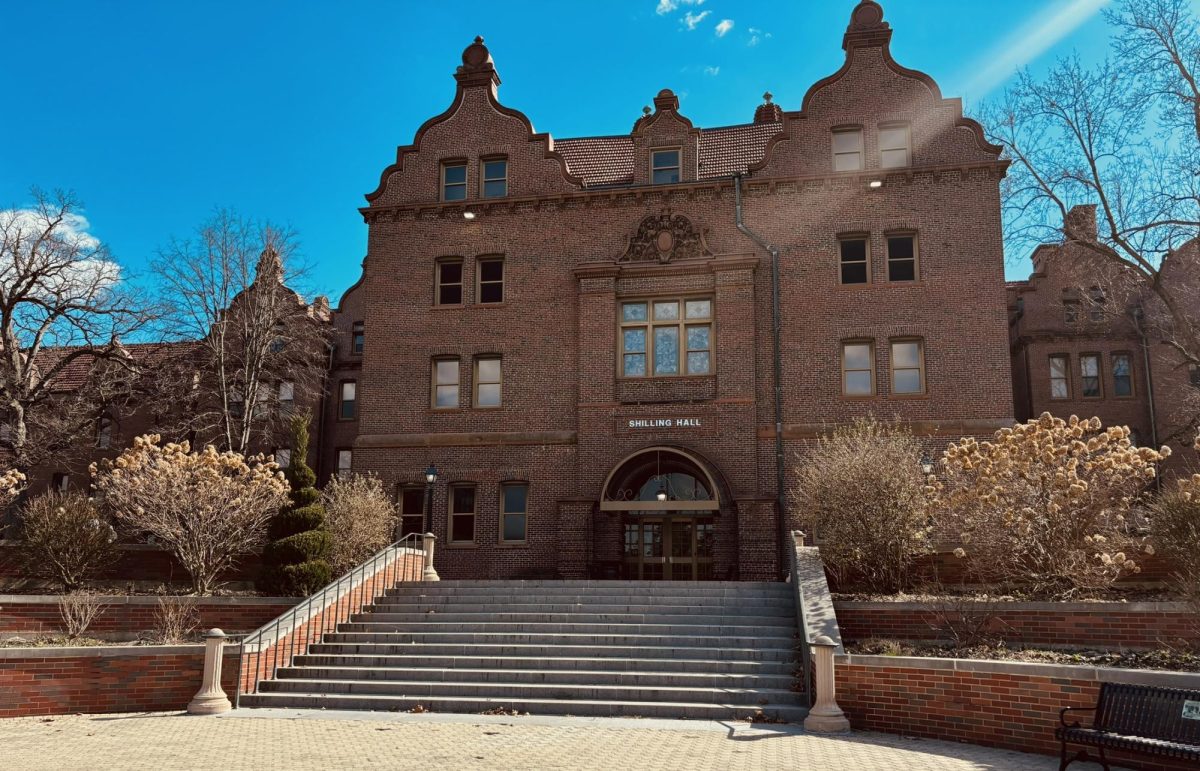What pushed Millikin University students to join the Big Blue family, and how is it going so far?
For college students everywhere, finances, campus size, and location are the most crucial factors in their decision.
Myesha Flagg, a junior psychology major and criminal justice minor, was influenced by the affordability of tuition. Millikin awards roughly twenty thousand dollars in aid per year.
“I received a really good scholarship from Millikin, [and] being from Illinois, so the tuition was a bit cheaper by choosing an in-state college,” Flagg said. “[Millikin] is also close to home, so I didn’t need to have room and board.”
Another important factor is the school’s reputation.
With over fifty academic programs and over 180 internships available, 99.4% of undergraduate students are able to secure a job or a position in graduate studies within six months of their graduation.
“[Millikin] has already helped to narrow down my options,” Flagg said. “It helped me find out that not only am I passionate about psychology, but I’m also passionate about criminal justice, and was able to intern at a job in a field that I was potentially thinking of having after college.”
Millikin alumnus Brooke Thompson is now working as an accountant. She shared why she chose Millikin and how it helped her progress her career.
“I chose Millikin for two main reasons,” Thompson said. “I was scouted for their women’s soccer program, and I wanted to experience a place different than where I grew up.”
Here at Millikin, sports play quite a large role in the campus environment. Forty percent of the student body are athletes. However, Thompson was injured, and her soccer journey was relatively short-lived. But she chose to finish her degree at Millikin anyway.
“I still agree with my choice,” Thompson said. “I feel like I grew a lot, and sometimes painfully so, as a person during my time at Millikin.”
Campus size and the ability to work one-on-one with professors also played an important role in the decision process for some students.
“The instructors I have are super understanding, supportive, funny, and take the time to make sure that you fully understand things,” Flagg said. “So after learning that throughout the three years I’ve been here, that’s an added point to why I chose Millikin, and am happy I did.”
Millikin has roughly two thousand enrolled students with an average class size of 16 students, and a student-faculty ratio of 10:1, making it a smaller school. But diversity is not something that the campus lacks.
“Taking that leap and submersing myself with new people and cultures and experiences at Millikin truly helped me navigate the working world and want to branch out and experience more of other places,” Thompson said. “The small school status of Millikin helped keep the education more personalized, which, in my opinion, helped establish a much stronger foundation of a working world individual.”
Delaney Conn is a sophomore psychology student who transferred to Millikin after spending some time at a larger school.
“I chose to come to Millikin because I liked the programs they offered, and it’s closer to home,” Conn said. “I liked how the class sizes are small compared to the classes at bigger universities.”
Even though Conn grew up in Decatur and thought she’d miss out on the college experience, she is making the most of her time at school close to home.
“I still enjoy Millikin because I’ve made a lot of connections and had a lot of opportunities that will help me succeed in the long run,” she said. “Through taking different classes, I’ve been able to figure out what I’m interested in and what I want to do as far as a career.”
Despite being a small campus, there are plenty of resources for students. While academics are greatly important, there is more that contributes to post-graduation success.
Millikin has over 90 student organizations, clubs, and Greek organizations that actively contribute to students’ leadership growth and service opportunities.
“I think my time in college will help me after I graduate because of the connections I’ve made through professors and the organizations I’m in,” Conn said. “I think that networking is an important part of discovering what you want to do after you graduate, and I believe Millikin and its location will be very beneficial in finding that.”
Millikin utilizes performance learning and community outreach programs to help students get and stay involved. While all these factors helped bring students to the university, it was the journey, even when it was not always easy, that students can take with them.
“[My experience] was chock-full of many new people, places, ideas, new perspectives, and much more to learn that I would not have otherwise,” Thompson said.


